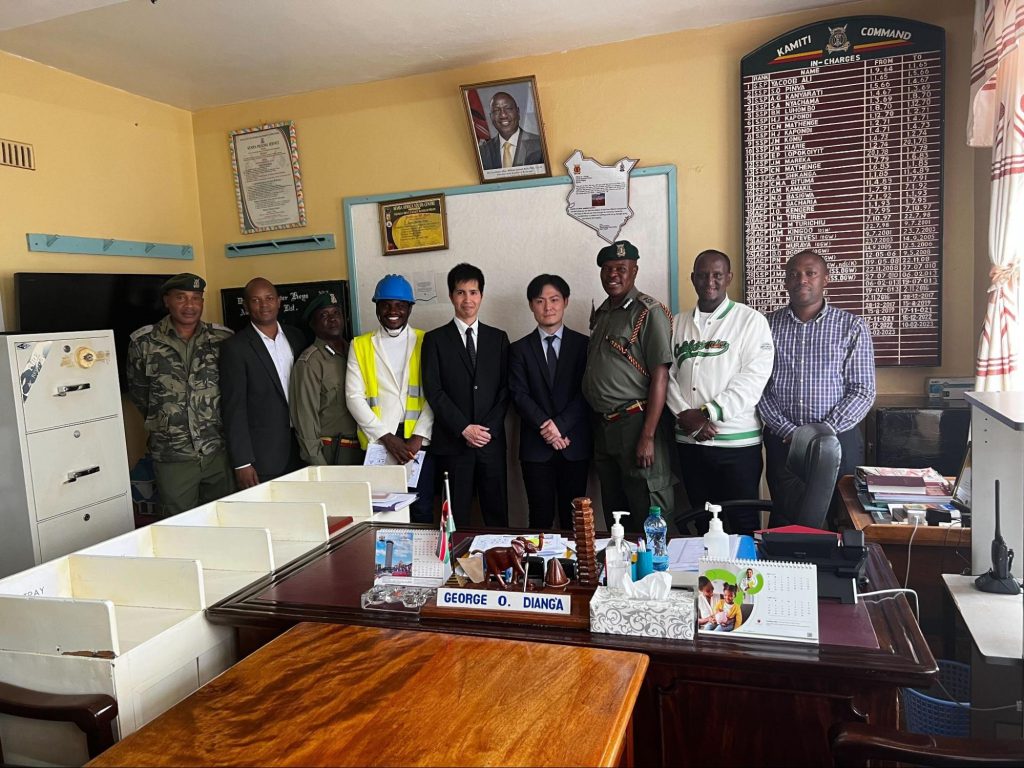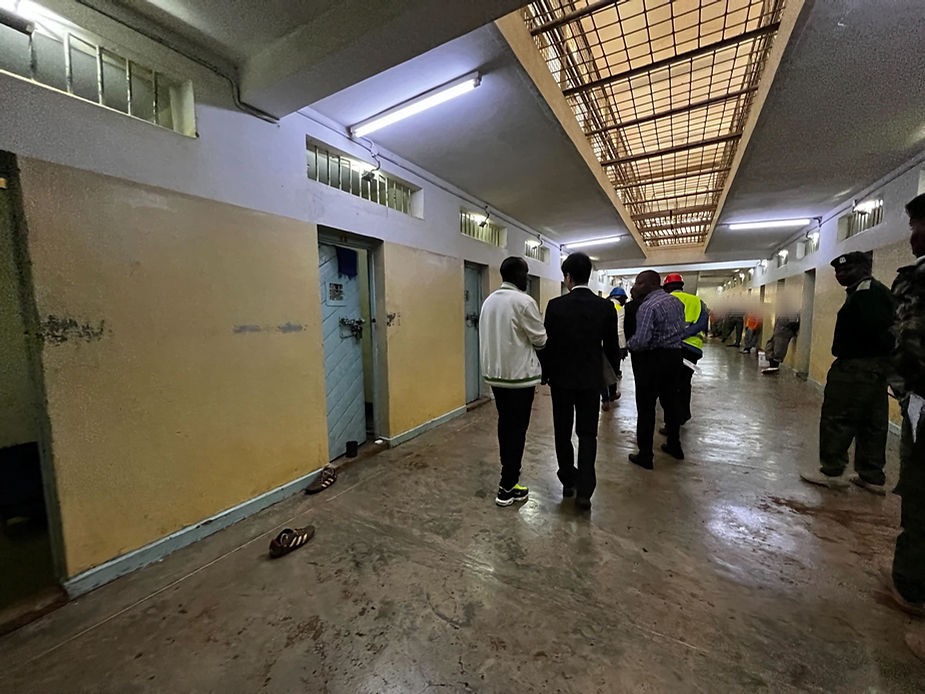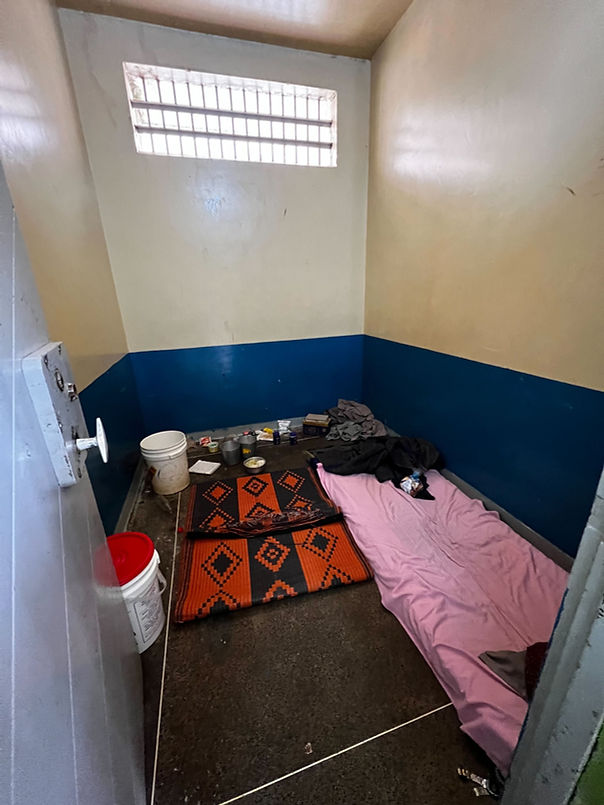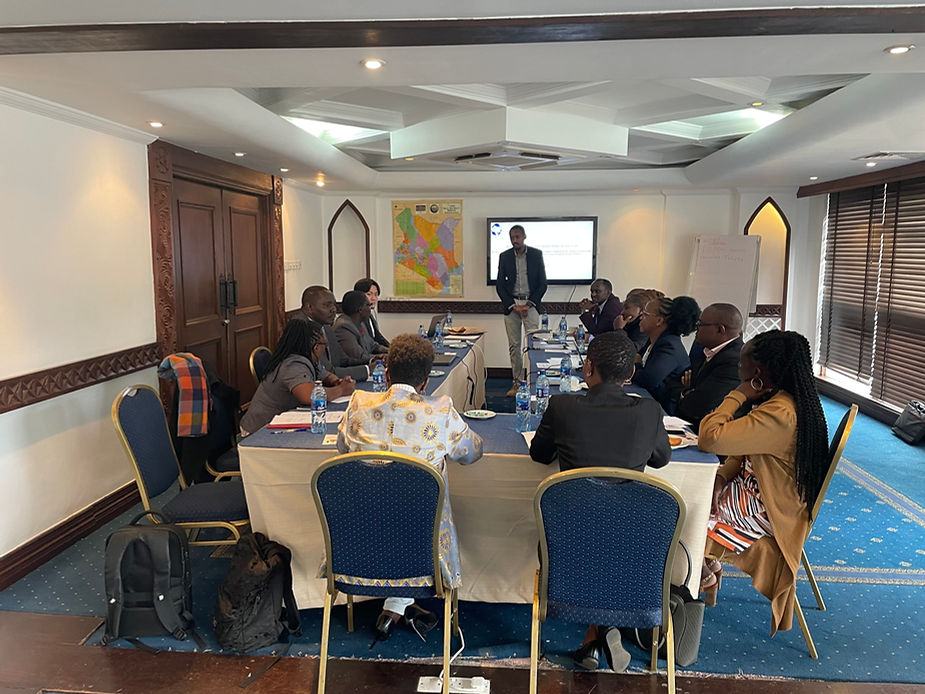August 30, 2023

The Kenya Division has been working to prevent radicalization by supporting income generation for unemployed youth, including gang members, as well as to support the rehabilitation and reintegration of terrorism-related inmates in prisons. Although Kenya is not an area of intense conflict, it is one of the important countries in promoting counter-terrorism measures, as the Somali-based so-called violent extremist organization Al-Shabaab is carrying out attacks and recruiting combatants.
In this article, we report on our field research into providing support to a maximum security prison that holds so-called terrorism offenders, and on our strengthened collaboration with the Protection Bureau, which supports prisoners’ reintegration into society after their release.
Field study at a maximum security prison
We conducted field surveys to build counseling facilities and renovate vocational training facilities at Kamiti Maximum Security Prison in the capital, Nairobi, and Simolatewa Maximum Security Prison in Mombasa, Kenya’s second largest city on the coast.
Many inmates hold extremist perspectives, and many have turned to the groups out of dissatisfaction with the current situation. Our care counseling services involve dialogue with these inmates, respecting the background and reasons behind their extremist views and dissatisfaction with society, and helping them redefine their identity as young people, citizens, parents, etc., and channeling their emotions into non-violent means. However, there are no spaces within the prison where inmates can talk calmly, so we plan to build a new one.
The warden of Kamiti Maximum Security Prison was very favorable towards our project, and he himself had received training for prison officers at a prison in Fuchu City, Tokyo for about a month, and he repeatedly expressed his gratitude to Japan. This was a moment when we realized that trust in Japan is a valuable tool for smoothly carrying out business in sensitive areas.
 ▲A dedicated holding area for terrorism-related prisoners
▲A dedicated holding area for terrorism-related prisoners
At Kamiti Prison, there are no toilets in each room, only shared ones. Since cells are locked at night, inmates must relieve themselves in buckets in their rooms. This creates an unhygienic environment that is inhumane even by international prison standards, and the prison warden has expressed a need for improvements to the facilities. As improving the detention environment will also help prevent inmates from becoming radicalized, the prison is considering installing toilets in each room from next year onwards.
 ▲Prisoners’ cells
▲Prisoners’ cells
Similar needs were also identified at Simotewala Maximum Security Prison in Mombasa. As the population density is higher than in Kamiti Prison, it is clear that this prison is prone to inmate dissatisfaction and that it is an environment that is conducive to the spread of extremist ideas, so we plan to proceed with the renovation of facilities at Simotewala Prison as well.
The warden of Shimothewara Prison was often surprised, asking, “Why is support being provided in such an unusual field from faraway Japan?”, but he also repeatedly told us how grateful he was and gave us words of encouragement, saying that he would do his best to cooperate in resolving the international issue related to terrorism.
Due to the change of government last year and the fact that the visit involved an extremely sensitive subject related to national security, it took more than a year to receive approval for the prison visit. However, it was a very meaningful experience, as we were able to actually visit the site, greet the relevant parties, and coordinate the detailed needs.
Strengthening cooperation with the Protection Bureau
In parallel with our field research at prisons, we are also strengthening our collaboration with the Protection Bureau. The Corrections Bureau, which is responsible for rehabilitation in prisons, and the Protection Bureau, which supports inmates’ reintegration into society after their release, each have different knowledge, perspectives, and ways of thinking about the people they support. Therefore, as we have provided not only rehabilitation support in prisons but also support after reintegration into society, we aim to bridge the gap between the Protection Bureau and the Corrections Bureau and encourage cooperation between them, in order to create a comprehensive support system for those we support.
 ▲ A meeting with actors involved in social reintegration, including the Protection Bureau
▲ A meeting with actors involved in social reintegration, including the Protection Bureau
Unfortunately, in Kenya, there is a cycle where people involved in armed conflict in areas with a high risk of radicalization are arrested and imprisoned, and then after their release they return to their hometowns, where they become radicalized again.
That is why, when members of so-called violence extremist organizations return to their hometowns, it would be ideal to use their experiences to educate and raise awareness in the local area about why they became radicalized and involved in violent attacks. Based on their experiences, we need to contribute to preventing extremism in the local area and support their reintegration into society as agents of peace, creating a virtuous cycle.
Our strength is our ability to devise essential approaches to problem-solving based on our daily experience working in Somalia, Yemen, and Japan.
Future Initiatives
Going forward, we will continue to provide visible results in prisons through support such as facility construction, while also providing care counseling for inmates and training for prison officers, thereby strengthening the comprehensive system for supporting their reintegration into society. We will also strengthen our collaboration with the Protection Bureau and involve many other stakeholders, including local NGOs, in our efforts.
Activity Reports










